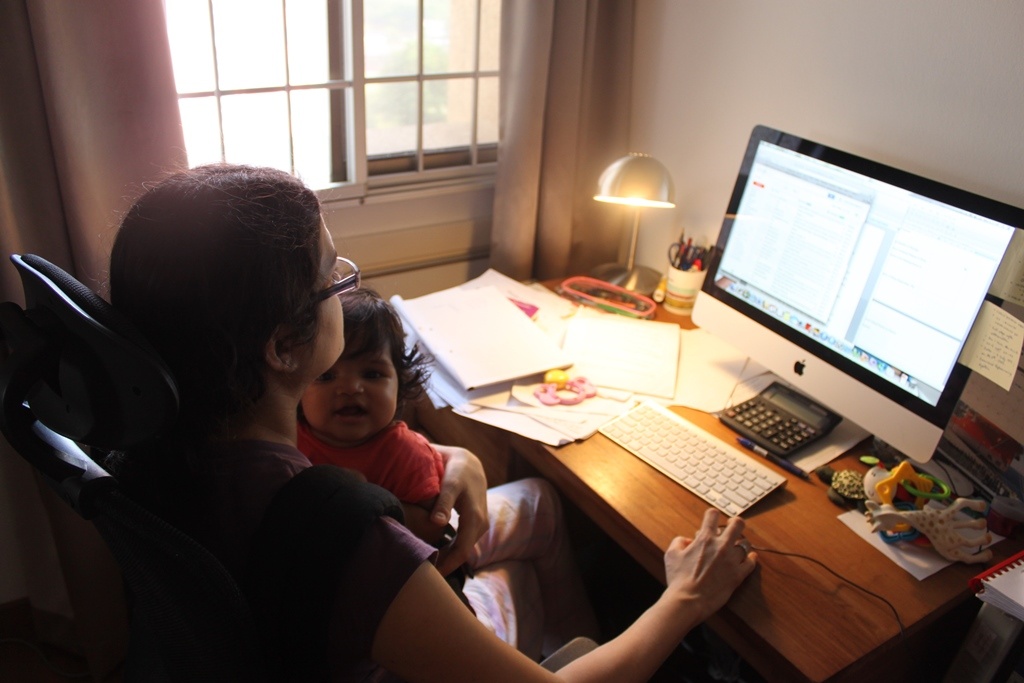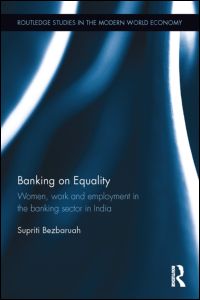#ConnectedWomen: Supriti Bezbaruah, A Gender Equality Advocate
 Contributed by
Supriti Bezbaruah
January 20, 2018
Contributed by
Supriti Bezbaruah
January 20, 2018

We focus the spotlight on a woman who surrounds herself with work ultimately leading to gender equality.
Supriti Bezbaruah is an independent researcher based in Singapore. She has over 15 years of experience in research on gender and development issues. She is the author of the book, “Banking on Equality: Women, Work and Employment in the Banking Sector in India.”
As women continue to be a driving force for change around the world, this series aims to highlight those who demonstrate an exceptional commitment to creating an impact.
A woman with many advocacies, she has worked for the United Nations, the Institute of Development Studies, and the Institute of Southeast Asian Studies in Singapore. She believes in the equality of women and men, in all aspects of life.
Meet the inspiring woman who just wants women to have the same rights as men. Here is Supriti who keeps on fighting the good fight, for women and with women.
It is such an honor speaking with a woman who’s truly passionate about women helping women. Please tell our readers what exactly it is you do.
My work mainly involves conducting research to understand and address issues of gender inequality, but I also conduct research on other topics relating to developing countries such as international development, poverty, foreign investment and governance.
I recently published a book based on my PhD research about the factors affecting women’s career advancement in the banking sector in India. So now, my research is primarily focused on gender inequality, particularly within the workplace. Put simply, I try to answer three questions:
- What is the problem? In what ways do women still face inequality at work?
- Why is there still inequality, even though women have become more educated and have been working in increasing numbers?
- What can be done about it?
To do this, I conduct interviews with women (and men – as I truly believe that without involving men, you cannot solve the problem of gender inequality) to find out what problems women are facing. I also analyse data and previous research on gender inequality. I bring all this information together to identify the main problems and issues related to gender inequality in the workplace. I then propose some recommendations on how these issues can be addressed.
Igniting The Spark
When I was doing my undergraduate degree in Politics, Philosophy and Economics (PPE), I met a feminist social activist called Monisha Behal, and we started discussing politics in India. She told me about how the reservation of political seats for women in India’s local government had transformed women’s lives in the villages. I then attended a few meetings where women from villages in rural India were being trained to become local political leaders.
I was amazed by how these women, often illiterate, had gained enough confidence to use their new-found political power to quietly and slowly work to change the lives of other women in their villages, from building schools for girls to campaigning for clean water supplies for women in the village.
I was fascinated and inspired by these developments and started reading more about gender equality and the feminist movement in India, which sparked my interest in contributing towards addressing gender inequality in India.

Message Of Supriti’s Mission
There is no country in the world where women are treated equally as men. But, the ways in which women experience inequality differs greatly depending on where they live. So, a woman living in Sweden, for instance, will be facing very different issues from women living in say, Nigeria.
To take an example from my own research on women in the banking sector in India: In UK and the US, the lack of childcare facilities is a key factor constraining women’s careers, so if you want to encourage women to stay in the workplace in these countries, you need to provide better and cost-effective childcare. In India, providing childcare centres is less of an issue as most women have domestic help and family support to look after children. Instead, women were concerned about issues such as gender stereotyping, expectations and pressure from family members to prioritise family over career, and safety.
When thinking about how to approach issues of gender equality, I always like to quote the famous HSBC ad, ‘Think Global, Act Local’.
We Need More Progress
We certainly still have a long way to go. According to recent research, it will take at least another 80 years before men and women are equal in the workplace! You would have thought that after so many years of women’s rights, and since women have mostly caught up with men in terms of education – at least in the developed world – this would have been a thing of the distant past.
There are different views on what is the biggest problem that women face in the workplace. In my view, it is because we are still trying to fit women into a workplace culture that was built by men, for men.
Jobs were and still are structured on the assumption that you can devote yourself to the job 24 hours a day, working long hours or travelling at the drop of a hat. The other aspects of life from housework to childcare get left to other people to do.
Unfortunately, although things are changing, the reality is still that women end up doing most household and childcare tasks, even if they are working full-time. In effect, women end up with two jobs – one at work, and the other at home. It is then unrealistic to expect that women can compete on equal terms as men at work.
Moving Towards An Equal Society
 We need to break down gender stereotypes about what men and women can do. To do so, we need to get men involved in the conversation about gender.
We need to break down gender stereotypes about what men and women can do. To do so, we need to get men involved in the conversation about gender.
I recently attended a talk where some senior women executives candidly admitted that their current achievements would not have been possible without their husbands taking on the major responsibility for housework and childcare.
What was interesting is that the husbands of these women were often asked by other men why they chose these roles? Yet, as the women pointed out, if the roles had been reversed, and the woman, not the man, was the one staying at home looking after the kids, no one would have even raised an eyebrow. It’s time to break down these expectations, for both genders.
In the workplace, companies need to find new ways of thinking about work to reduce work-family conflict. This is happening slowly, as companies increasingly adopt flexible working arrangements, home-based work and work-life harmony programmes, but a lot more needs to be done.
The entire way we view work and life needs to be overhauled so that everyone, from workers to bosses to clients, recognise that household chores and childcare are not just a woman’s responsibility, but everyone’s responsibility.
Do you consider yourself a feminist? Why?
Yes, of course! I know there has been a lot of bad press for the word ‘feminism’ and many women distance themselves from it. But, as far as I am concerned, as long as you believe that men and women should be treated equally, then you’re a feminist.
What other advocacies do you stand up for?
I also believe in the Gandhian principles of non-violence, peace, and kindness towards others.
Work With Supriti
They can contact me through LinkedIn. I also have plans to host some talks on gender inequality, as well as setting up a blogpost/website to discuss these issues. Further information on these will be posted on my linkedin site.
We are the leaders, activists, innovators, and visionaries – whether in the public eye or behind the scenes
– who are revolutionising the way people think and live. We are #ConnectedWomen.











Sorry, the comment form is closed at this time.